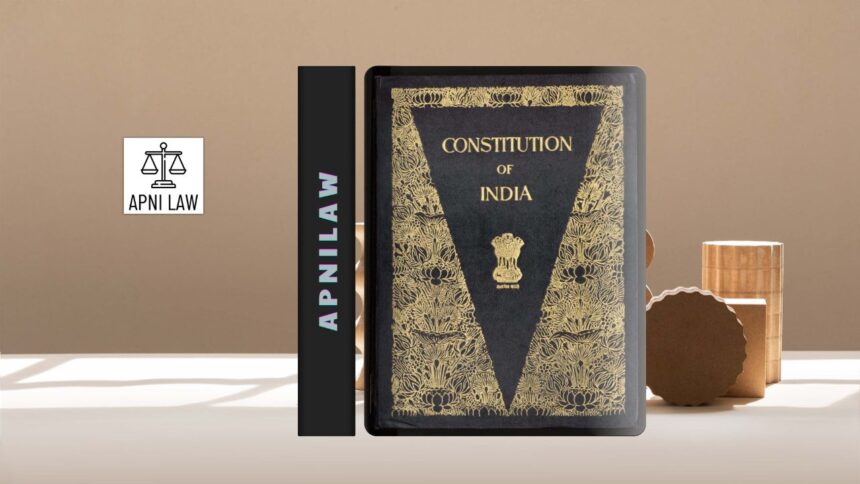Introduction
The Indian Constitution recognizes that democracy cannot survive without liberty. To protect this liberty, Article 19 guarantees six fundamental freedoms to Indian citizens. These freedoms give people the ability to express themselves, move across the country, form associations, and pursue professions of their choice. At the same time, the Constitution balances these rights with reasonable restrictions so that freedom does not harm public order, morality, or national security. Article 19 lies at the heart of democratic governance, ensuring citizens can live with dignity while participating fully in the nation’s political and social life.
Freedom of Speech and Expression
The most celebrated aspect of Article 19 is the freedom of speech and expression. This right allows individuals to express opinions, share ideas, and engage in public debate. Freedom of the press, the right to protest peacefully, and artistic expression all flow from this provision. Courts have clarified that this freedom includes the right to receive and share information. However, it is not absolute. The state can impose restrictions to prevent hate speech, defamation, or actions that threaten national security and public order.
Freedom to Assemble Peacefully
Article 19 also gives citizens the right to gather peacefully without arms. Peaceful assemblies are central to a democracy because they allow people to voice grievances, demand accountability, and promote collective action. Protests, rallies, and meetings derive legitimacy from this freedom. Yet, assemblies must remain non-violent, and authorities may regulate them to prevent disturbances to public order or threats to national integrity.
Freedom to Form Associations and Unions
Citizens also enjoy the right to form associations, unions, and cooperative societies. This freedom enables individuals to collectively pursue common goals, whether in labor movements, political organizations, or cultural groups. It empowers civil society to thrive. The state, however, may impose restrictions on associations that promote unlawful activities, threaten sovereignty, or endanger public peace.
Freedom of Movement
Article 19 allows citizens to move freely throughout India. This provision strengthens the idea of national unity by ensuring that no state can restrict internal mobility on arbitrary grounds. Citizens can travel, explore, and experience the diversity of India without legal barriers. Restrictions may apply only in specific situations, such as protecting the interests of Scheduled Tribes or safeguarding sensitive border regions.
Freedom of Residence
Closely linked to the freedom of movement is the right to reside and settle in any part of India. This provision reinforces national integration by allowing people to live wherever they choose. It also supports economic opportunities, as individuals can migrate for work or education without discrimination. Exceptions exist for areas requiring special protection, such as tribal regions, to preserve local cultures and resources.
Freedom of Profession, Occupation, Trade, or Business
The sixth freedom under Article 19 is the right to practice any profession or carry on trade, occupation, or business. This freedom fosters economic independence and innovation. Citizens may choose their career paths and pursue opportunities without undue interference. Still, the state can regulate activities to protect public interest. For example, harmful trades may be restricted, and certain professions may require qualifications or licensing.
Judicial Interpretation and Importance
Over the years, the Supreme Court has expanded and clarified the scope of Article 19. Landmark cases like Maneka Gandhi v. Union of India emphasized that freedom under Article 19 must align with dignity and personal liberty under Article 21. Courts have also balanced individual freedoms with collective interests by upholding restrictions that protect order and morality. This judicial interpretation ensures Article 19 remains dynamic and relevant in changing times.
FAQ Section
1. Why is Article 19 important in a democracy?
Article 19 is important because it protects essential freedoms like speech, movement, and profession, enabling citizens to participate actively in democratic life.
2. Are the freedoms under Article 19 absolute?
No, the freedoms are subject to reasonable restrictions. The state may regulate them in the interest of sovereignty, public order, morality, or security.
3. Does Article 19 apply to foreigners?
No, Article 19 applies only to Indian citizens. However, other provisions of the Constitution safeguard certain rights for non-citizens as well.
Conclusion
Article 19 of the Indian Constitution guarantees six freedoms that define the essence of democratic citizenship. These include freedom of speech, assembly, association, movement, residence, and profession. By granting these rights, the Constitution empowers citizens to live freely and pursue personal growth while contributing to national development. At the same time, reasonable restrictions ensure that freedom does not compromise public order or national security. Article 19 continues to be the foundation of liberty in India, shaping the relationship between the state and its citizens in a way that strengthens democracy and equality.
For any specific query call at +91 – 8569843472








